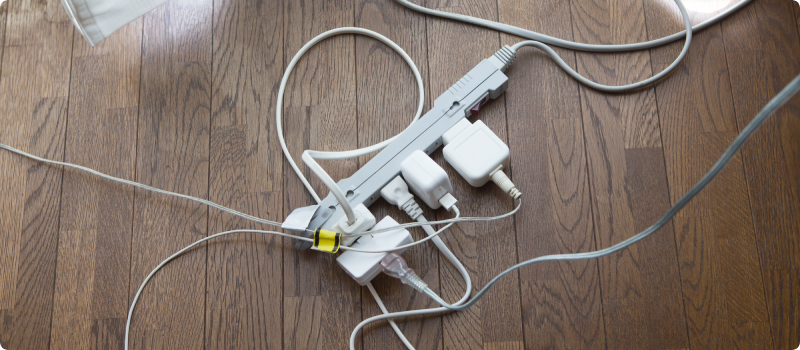
Does homeowners insurance cover fires?
Updated February 29, 2024 . AmFam Team
Your homeowners insurance is there to help protect you when the unexpected happens. But does it cover damage from fires? Most homeowners insurance policies include fire damage coverage, from helping to repair your home to covering your additional expenses if you have to relocate for a while.
To give you one less thing to worry about, we’ll go over the most common types of homeowners insurance coverages that can help pay for fire damage to your home and your personal belongings. Plus, we’ll help you navigate the process of filing a claim after a fire damages your home.

What is fire insurance and how does it work?
Fire insurance can refer to coverage for your home’s structure in the event of a fire. More accurately, homeowners insurance is typically the type of insurance that can help pay to repair your home in the event of a fire. Fire insurance isn’t a separate policy from your standard homeowners policy. Your home insurance is built to protect you in a number of ways from fire related damage.
Fire insurance costs
The cost of fire insurance is usually the cost of homeowners insurance, as coverage for fires is typically included in your homeowners policy. That means getting a fire insurance quote would be the same as getting a homeowners insurance quote. To help estimate the cost of your insurance, get a homeowners insurance quote or talk to your agent.

Different types of home insurance fire coverages
Home insurance covers fire damage in several ways with different types of coverage handling different expenses after a fire. Here are the most common types of fire insurance coverages:
Dwelling coverage
In insurance terms, your home is considered a dwelling, which means its structure and materials are protected by dwelling coverage. This coverage helps pay for the cost to repair your home or pay you a lump sum, minus your homeowners insurance deductible, in the event that the structure of your house is destroyed by fire.
Keep in mind, these fire damage expenses are only covered up to your dwelling coverage limit, so make sure you have enough coverage to match the value of your home and then some.
Personal property coverage
If your house catches fire and the things inside it are damaged or destroyed, your personal property coverage will help to pay for the cost to replace your stuff, up to your personal property coverage limit. You can raise your personal property coverage limit and even do what’s called “scheduling” with certain items to give them more comprehensive protection.
Loss of use coverage
In the event your home is damaged or destroyed by a fire and you can’t continue living there, loss of use coverage can help pay for additional living expenses. This coverage can help cover the cost of relocating, hotel or short-term rental expenses, food and even laundry after a fire.
Personal liability coverage
A house fire is bad enough when it damages or destroys one home, but if a fire from your home spreads to your neighbor’s, you may be held liable for the damage. Personal liability coverage can help cover the expense of a settlement should your neighbor take you to court over the fire.
While your homeowners insurance typically comes with some personal liability coverage, the amount of coverage may not be enough to pay for something like someone else’s house burning down. Consider personal umbrella insurance to help supplement the coverage limits on your homeowners insurance — it can help pay for legal expenses and the settlement costs beyond your homeowners coverage limits, should you be found legally at-fault after a fire.

What types of fires are covered by insurance?
Your insurance adjuster will want to know what caused the house fire after you file a claim. The types of fires that may be covered by home insurance include but aren’t limited to:
Candle fires
If you or someone in your home — including the cat — knocks over a candle, the resulting fire is most likely covered by your home insurance.
Grease fires
This typically only happens in homes with gas ranges, but if your cooking oil catches fire while you’re making dinner, your homeowners insurance should help to cover the damages.
Electrical fires
A short circuit or power surge can cause a lot of damage to your electrical system, as well as sparking a fire that damages your home. Your homeowners insurance can be there to help you recover what you’ve lost.
Does insurance cover accidental fires?
Homeowners insurance can cover accidental fires. If one of the fires covered by your home insurance is caused by accident — like if you accidentally knock over a candle — your homeowners policy usually covers the damage to your home caused by that fire.
What types of fire aren’t covered under insurance?
A fire that you cause intentionally is usually not covered by homeowners insurance. For example, if you purposely set fire to your home, your homeowners insurance will not cover the damage to your home that you caused. If you live in an area prone to wildfires, it may be difficult to get home insurance that covers wildfire damage due to the risk involved with insuring homes in those areas.
How to file a fire insurance claim
So you’ve had a fire. Maybe it was just a small one that damaged the kitchen ceiling, or maybe the damage is significant and your house burns down. The first thing you should do is make sure everyone is safe. The second thing you should do is call your insurance agent.
Filing a homeowners insurance claim after a fire requires a few pieces of information:
- Your name and policy information
- The date and time of the event
- A brief description of what happened
- The police or fire department report
- Records of the damage — could be photos, videos or both
- The insurance information of anyone else involved
You might be wondering what happens next after you file a home insurance claim for fire damage. Once your claim is filed, your insurance company will review it as quickly as possible and get a claims adjuster sent out to meet you. When the adjuster arrives, they’ll assess the fire damage to your home. With their assessment, the claims adjuster can then process your settlement.
Need to file a fire insurance claim with American Family? You can do so online or with the MyAmFam app. And, if you need to, you can always call your agent.
This information represents only a brief description of coverages, is not part of your policy, and is not a promise or guarantee of coverage. If there is any conflict between this information and your policy, the provisions of the policy will prevail. Insurance policy terms and conditions may apply. Exclusions may apply to policies, endorsements, or riders. Coverage may vary by state and may be subject to change. Some products are not available in every state. Please read your policy and contact your agent for assistance.



